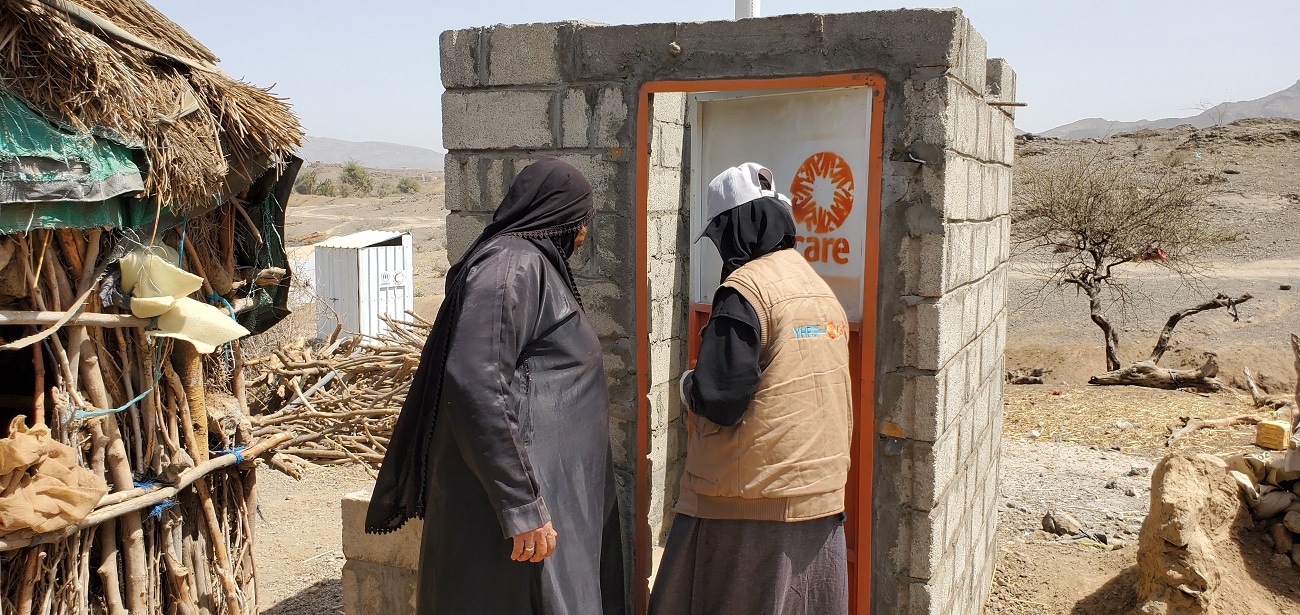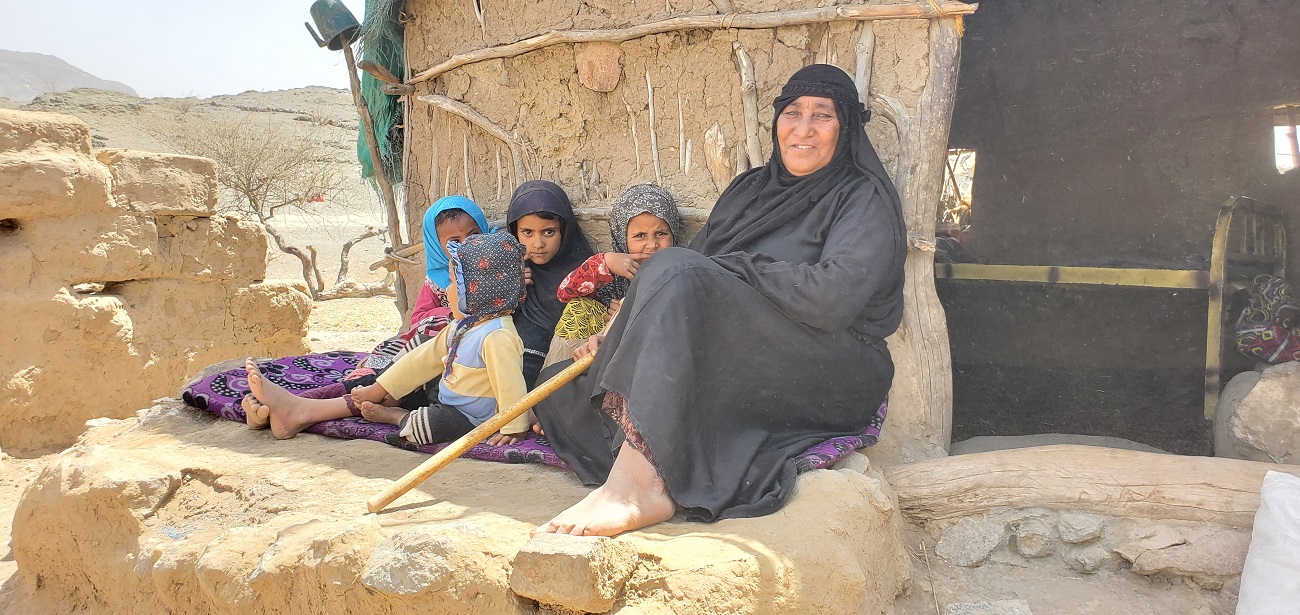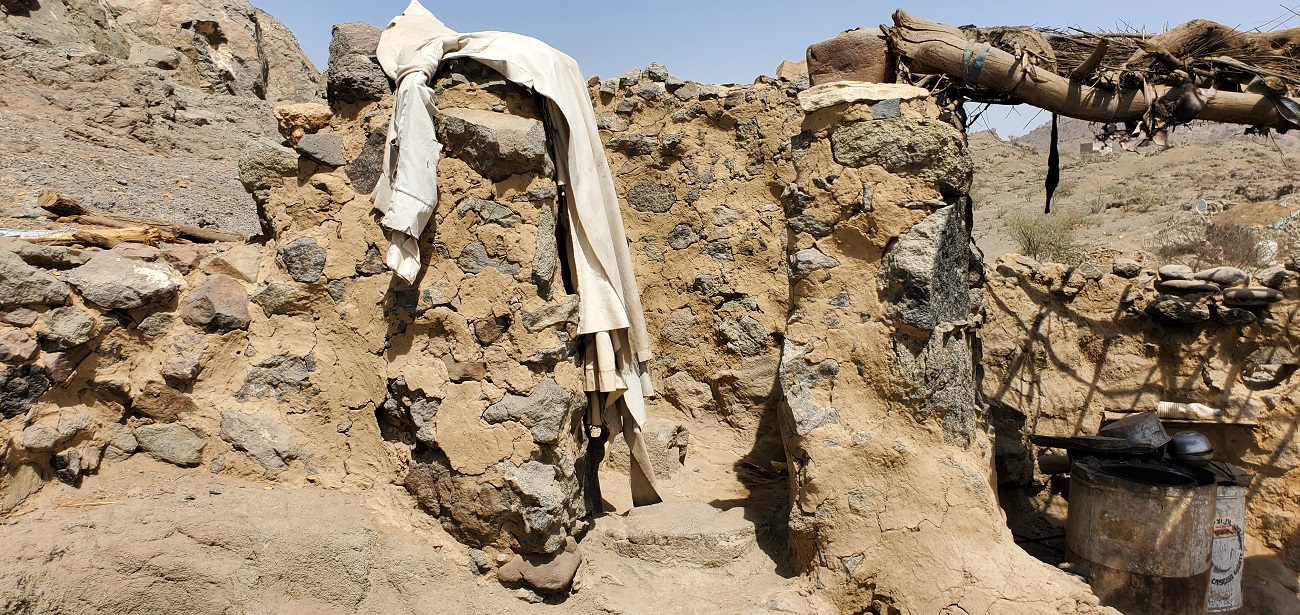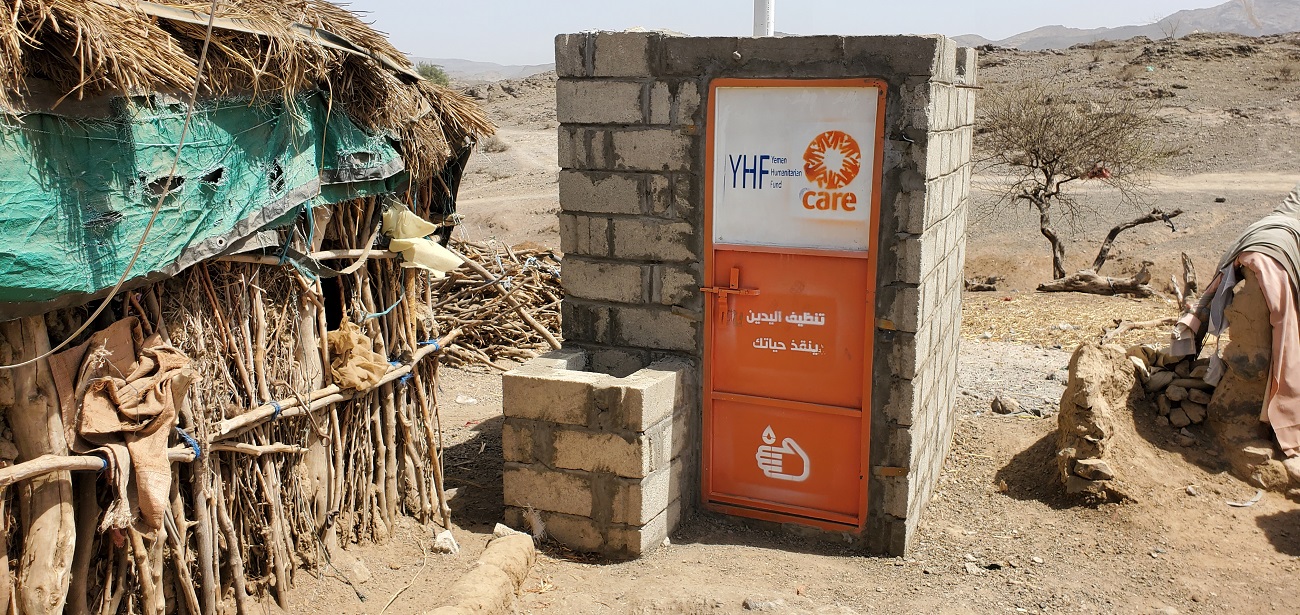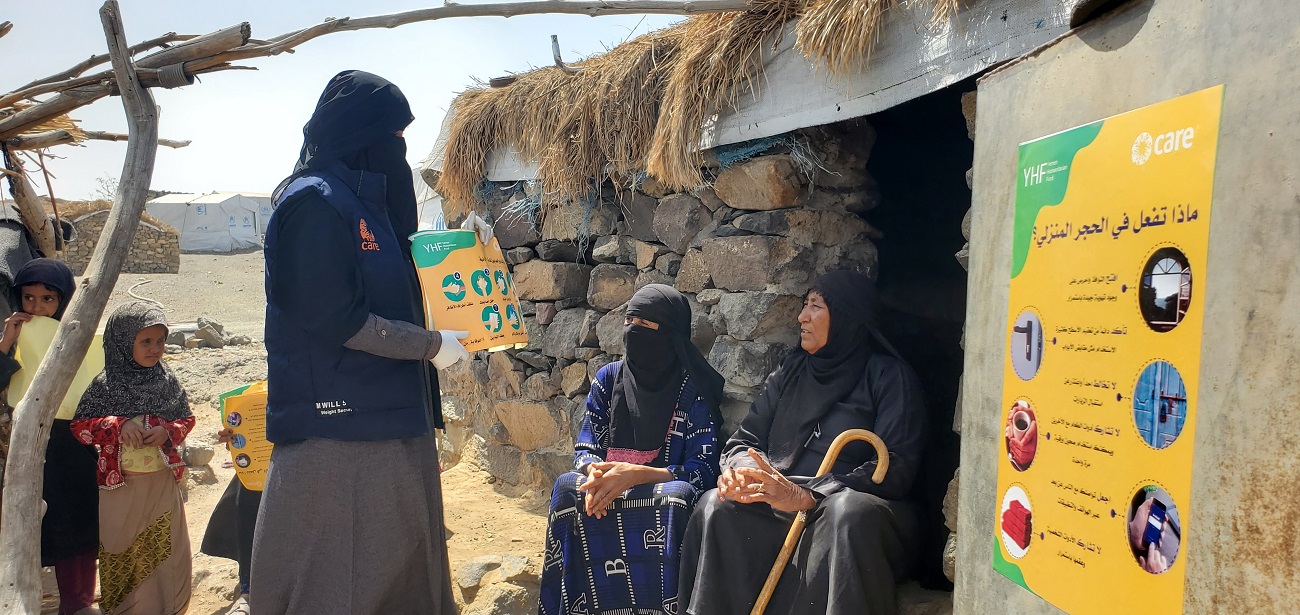After nearly seven years of conflict, according to the 2022 Yemen Humanitarian Needs Overview, a total of 23.4 million people in Yemen are in need of humanitarian assistance. A lack of access to safe water, sanitation, and hygiene are some of the most pressing concerns – a staggering 36 per cent of the Yemeni population live without adequate sanitation.
Romia is a 60-year-old mother of five children, 3 sons and 2 daughters, from Bakeel Almeer, Hajjah Governorate in north-western Yemen. She and her family used to have a simple but happy life. As many in her village, she used to raise sheep and goats to sell some to buy the necessities of her family and feed and take care of her family. Herders in rural areas in Yemen depend on selling livestock since it is an important revenue source.
The eruption of the war in 2015, has changed her life completely. “We used to have a small house and a source of income, but I lost everything I had. I have never imagined this could happen to us,” says Romia as she was reminiscing about her life in the past. “Warplanes were hovering around. My village was under attack. It was unwise to stay any longer. We left everything and we were forced to start a new journey of displacement life,” Romia describes the horrific day of displacement. “We didn’t know where to go but my husband kept driving away from the village and looking for a safer place.”
